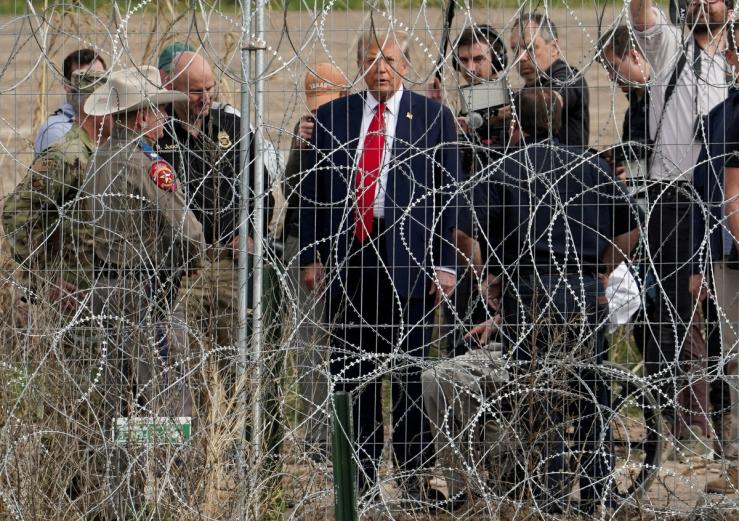The News
Mexico is bracing for an economic and political storm following former US President Donald Trump’s reelection to the White House.
The Mexican peso dropped to a two-year low Wednesday as markets reacted to the incoming president’s pledged border crackdown and threat to impose tariffs of 25% on Mexican imports if migration controls fail to stop illegal border crossings.
Mexico’s President Claudia Sheinbaum took a defiant stance, telling a news conference: “Mexico is a free, independent and sovereign country and we’re going to have a good relationship with the US.”
SIGNALS
Mexican peso plummets as Trump’s tariffs threaten trade
Mexico’s peso on Wednesday fell to its lowest level against the dollar in more than two years over fears that Trump’s threatened import tariffs could lead inflation to spike. Trump’s immediate threat of a 25% tariff on Mexican goods, with further hikes of up to 75%, is rattling financial markets over fears it could lead to soaring inflation. With 80% of Mexican imports going to the US, the economic ramifications of the levies, including a possible 100% tax on vehicles imported from Mexico, could be severe, according to The Guardian. The tariffs could disrupt deeply integrated US-Mexico supply chains, El País wrote, affecting both countries’ industries and escalating costs for American consumers.
Mexican president’s renewable energy plans face uncertain future
Mexico’s new President Claudia Sheinbaum will need to navigate relations with the Trump administration carefully as she presses ahead with an ambitious $23.4 billion energy investment plan. The plan, aimed at bolstering Mexico’s energy infrastructure, includes goals to convert 45% of Mexico’s grid to renewable energy by 2030. Trump’s desire to renegotiate the US-Mexico-Canada Agreement he signed in 2018, could complicate foreign investment in Mexico’s energy sector that Sheinbaum’s plan depends on. Trump’s potential use of tariffs—particularly on industries relying heavily on US exports — may create barriers to foreign and private sector involvement that could jeopardize Mexico’s ability to sustain its energy transition.
Proposed immigration policies set to strain cross-border relations
Trump has pledged mass deportations of undocumented immigrants, which if it happens, would be the largest deportation effort in US history, affecting roughly 11 million people, four million of whom are Mexican. If they are deported, Mexico would likely face higher unemployment and social strain as workers compete for scarcer jobs. The economic implications extend further: In 2023, Mexican migrants in the US sent $63 billion back home, The New York Times reported, and if they are forced to leave, so will those remittences end. Mexico’s Sheinbaum may try to strike a delicate balance, offering more cooperation on curbing migration in order to mitigate Trump’s tariffs, which would also damage the Mexican economy, Reuters noted, while also bracing for potential socioeconomic pressures caused by deportations.



